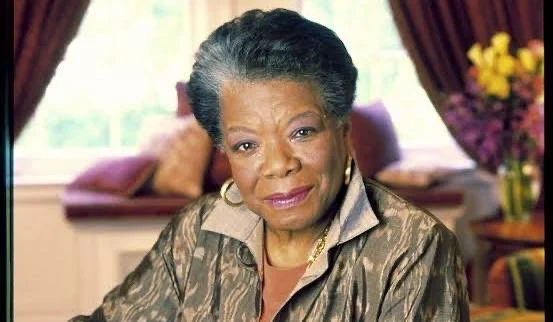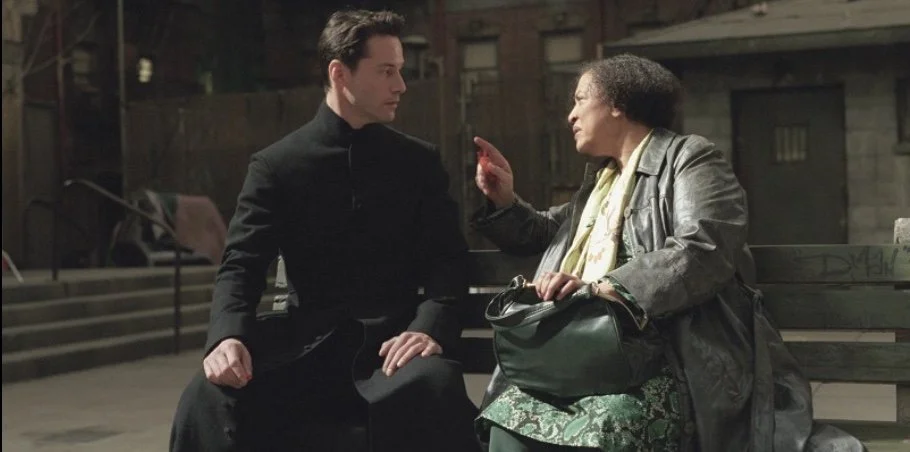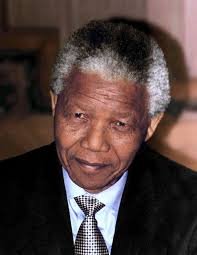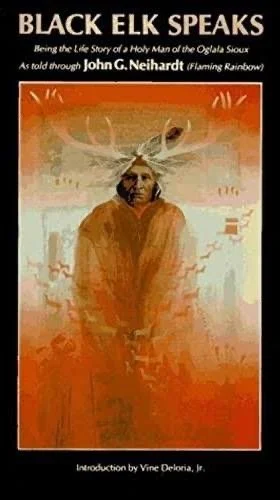From Hero to Wise Elder
From Role to Soul. DR Phelan - Uplift Centre 2025
Obi-Wan Kenobi (Star Wars): Evolves from warrior to wise mentor
Introduction
Across cultures, philosophies, and wisdom traditions, life is not simply a pursuit of success but a profound journey of transformation. The first half of life emphasises achievement and identity-building — the "Hero phase." Yet for those willing to embrace the deeper invitation, there comes a further opportunity to journey into Elderhood: a season marked by wisdom, surrender, compassion, generativity and legacy.However, despite living longer and healthier lives than our ancestors, in western societies we tend to lack meaningful elderhood, nor recognise or benefit from it. Many grow older but few become true, authentic, wise elders. This guide draws upon a wide range of thinkers, including Daniel Levinson, Connie Zweig, Richard Rohr, Carl Jung, my own and others listed at the end, integrating psychological, spiritual, mythological, and developmental perspectives to help you reflect on your own journey from Hero to Wise Elder.1. The Hero's Quest (Youth & first decades of Adulthood) .
See The Hero’s Journey for a deeper dive
Core Task: Establish personal identity; pursue ambitions; build external success.
Primary Drivers: Achievement, recognition, proving oneself to the world.
Illustrations:
David slaying Goliath (Bible, 1 Samuel 17): Young shepherd who courageously faced and slew the giant Goliath; anointed king.Joan of Arc (a patron saint of France), honoured as a defender of the French nation. Claiming to be acting under divine guidance, she became a military leader who transcended gender roles and gained recognition as a saviour of France.Luke Skywalker (Star Wars): A young farm boy called into an intergalactic struggle; grows from naïve youth into heroic warrior, helped by Obi-Wan Kenobi, himself a hero Jedi Knight when younger.King Arthur: A chosen young king who unites his people and builds the legendary kingdom of Camelot.
Insights: This phase is marked by the formation of ego identity, ambition, and striving for recognition. As Levinson (1978) observed, early adulthood centers on forming a "life structure" — career, relationships, family, and social identity. This phase lays important foundations but is often dominated by ego and external validation.
2. The Crucible of Adversity (Midlife Challenges)
Core Task: Confront limitations, setbacks, and disillusionment
Primary Drivers: Loss, failure, necessary suffering (Rohr), question previous assumptions.
Illustrations:
King David (Bible) Betrayed, hunted, and undone by his own moral failings. But through repentance and grief, David gained humility, leaving a legacy not of perfection but of authenticity before God.Naomi (Bible, Book of Ruth): Heroic rise: Wife and mother in Bethlehem. Crucible: Loses husband and sons; left destitute. She even renames herself Mara (“bitter”). Emergence: Through grief and honesty, she guides Ruth and later becomes a matriarch in Israel’s story — a true elder.Abraham Lincoln (1809–1865) Heroic rise: Lawyer, U.S. Congressman, ambitious politician. Crucible: Faced repeated political failures, the death of children, and deep depression. Emergence: These experiences refined his empathy and humility, preparing him to guide America through its most painful civil war.Jean Valjean (Les Misérables): From prisoner to compassionate leader, transformed by mercy and hardship.
Insights: Midlife confronts us with crisis and limitation, often dismantling earlier assumptions of control. As Bridges (1980) emphasises, this becomes a threshold where inner transformation becomes possible if we embrace the ambiguity of transition.
3. The Unveiling of Authenticity (Midlife Transition)
Core Task: Let go of false identities; embrace inner truth.
Primary Drivers: Realignment of personal values; move from outer image to inner essence. Authenticity
Maya Angelou
Illustrations:
Maya Angelou (African American) Survivor of childhood trauma and early hardship, she tried on many “masks” (dancer, singer, actress, political activist). Midlife unveiling: In her 40s she wrote "I Know Why the Caged Bird Sings", telling her story with unflinching honesty. Elder authenticity: Became a global elder-poet, revered for her courage to speak truth and embody dignity. Her authenticity inspired countless women to embrace their own voice.Mother Teresa (founded the Missionaries of Charity serving the poor of Calcutta.) For years she experienced a “dark night of the soul,” profound inner doubt, and silence from God. Instead of destroying her, the suffering deepened her compassion and authenticity. She became a global spiritual elder.
Neo meeting the Oracle in The Matrix Reloaded
Neo (The Matrix): Letting Go of False Identities: At the beginning, Neo (Thomas Anderson) lives with a split identity: By day: a mild, dissatisfied office worker — stuck in the system, living by its rules. By night: a hacker searching for truth under the alias “Neo.”His false self is the “Anderson” identity — obedient, respectable, performing normality. His awakening begins when he finally lets go of that facade and chooses the red pill, stepping into who he really is. Embracing Inner Truth: The pivotal moment: “My name is Neo.” He embraces his true identity as “the One.” This isn’t just about power — it’s about inner alignment: recognising the illusion of the Matrix and refusing to be defined by external roles or constraints. His authenticity is not about acquiring new skills (martial arts, hacking the code) but about believing in his true essence. Realignment of Values: Early Neo is motivated by curiosity and rebellion. Later, his values shift toward: Love — deeper than individualism or rebellion. Sacrifice — willingness to give himself for others. Truth — standing in reality, no matter how uncomfortable.This mirrors the realignment many experience in midlife: moving from achievement and image to essence and meaning. The whole arc of Neo’s journey is the movement from performing (“Anderson”) to embodying (“Neo”). Authenticity here means: Living beyond imposed roles. Acting from inner conviction, not external programming. Accepting responsibility as himself, not a projection.
Insights: This stage invites the shedding of external masks to discover one’s core identity and soul vocation. Here, the Hero begins the shift from external striving to internal alignment with authentic selfhood.
The Two Kinds of Intelligence
In 1971, British psychologist Raymond Cattell published a book called Abilities: Their Structure, Growth, and Action. His research showed that people draw on two main kinds of intelligence during their first and second halves of their life journeys:
1. Fluid Intelligence
Fluid intelligence is our ability to think quickly, reason flexibly, and solve new problems. It powers new ideas, innovation, analysis and creative breakthroughs — the mental and creative agility behind many early-career successes. Our “hero” generally has an abundance of fluid intelligence. Cattell found this type of intelligence peaks in early adulthood and begins to decline noticeably through our thirties and forties. We can still think well, of course, but the lightning-fast processing and fresh-idea energy of youth gradually fade.
2. Crystallized Intelligence
Crystallized intelligence, on the other hand, is built from experience. It’s the ability to use what we’ve learned — to recognize patterns, connect ideas, and explain them clearly to others. As we age, we may be less quick to invent something entirely new, but we become far better at drawing on our deep reservoir of knowledge. We see meaning and relationships others might miss, even mentoring others to help them interpret their own insights. Crystallized intelligence usually keeps increasing through our forties, fifties, and sixties — and often stays strong well into old age.
Think of it like a library. When we were younger, our mental librarian sprinted from shelf to shelf, finding new books in seconds. Now the librarian moves more slowly — but the library itself has grown vast and rich. Even if it takes longer to locate a book, the collection is far deeper, and the librarian knows where to look and how books are connected.. Later success rests on this second kind of intelligence — on wisdom, the ability to recognise patterns based on experience, synthesise and connect what we know,, mentoring and teaching. It is the intelligence of Elders.
Transitioning from early achievement success to later life “success” involves learning to develop crystallised intelligence (slower deeper wiser thinking) as our reliance on fluid intelligence (quick wits, creative agility, and fast on our feet) wanes. It involves learning to shift gracefully from the strengths that perhaps once defined us, to new strengths of perception, understanding and wisdom.
4. Transitioning to the Wise Elder (Second Half of Life)
Core Task: Transition from achievement to wisdom and service… generally over a number of decades.
Primary Drivers: Humility, surrender, spiritual depth, mentoring others.
Sir Douglas Nicholls
Illustrations:
Douglas Nicholls - Hero: AFL footballer, activist, and pastor, who fought for Aboriginal rights. Later became a highly respected spiritual and community elder, and the first Aboriginal Governor of South Australia, embodying humility, reconciliation, and vision.Ruth (Bible) Heroine: Took bold risks in leaving Moab and providing for Naomi. Through faithfulness, she became a matriarch in Israel’s story — remembered not for daring alone but for loyalty, kindness, and wise presence that shaped a lineage leading to DavidWinston Churchill - Heroic rise: Young political star, war correspondent, First Lord of the Admiralty. Crucible: The Gallipoli disaster (WWI) was a crushing failure. He was sidelined for years, facing ridicule and obscurity. Emergence: Humbled and tempered, he returned in WWII with resilience and gravitas, becoming the leader Britain needed.Spock in Star Trek begins as science officer / warrior who embraces Vulcan logic, but represses his human emotion side. Mirroring Rohr’s “necessary suffering” cycle, Spock encounters a number of crucibles of loss, sacrifice, death and renewal. Eventually, the hero Spock evolves into Ambassador Spock - a reconciler, diplomat, bridge-builder, revered Wise Elder. His authenticity is clear: he no longer hides his human emotion (warmth, humour, compassion), nor denies his Vulcan discipline. He embodies wholeness and is respected not for his rank or intellect alone, but for his depth, humility, integrity and service.
Insights: As Rohr (2011) describes, this is the turning point where we "fall upward," moving from ego-centred living into generative service and non-dual wisdom. The Wise Elder is born from accumulated experience, suffering and surrender of egoism, and an openness to the greater mystery.
Jungian Insight
Carl Jung (Swiss psychiatrist and founder of Analytical Psychology) observed that many of his patients in the second half of life struggled with a loss of meaning and inner direction. He wrote: "Among all my patients in the second half of life ... there has not been one whose problem in the last resort was not that of finding a religious outlook on life” i.e. a personal, lived sense of connection to meaning, transcendence, and the deeper structures of psyche — what we might call today spirituality. For Jung, true maturity required not only psychological growth but a spiritual awakening — a reconnection with what he called the "numinous" — the deeper, transcendent dimension of the Self. Our True Self.
5. Cultivating Wisdom Through Reflection
Core Task: Integrate the full arc of life’s experiences into deep wisdom.
Primary Drivers: Reflection, spiritual practice, discernment, meaningful storytelling.
Nelson Mandela
Illustrations:
Nelson Mandela (South African) Hero: A fiery lawyer and activist with the ANC, committed to fighting apartheid through protest and sometimes sabotage. His identity was bound up in action, resistance, and being the liberator. The crucible: Arrested and sentenced to life imprisonment, Mandela spent 27 years in prison. He faced the stripping away of status, control, family life, and the assumption that freedom could be won quickly. Transformation through adversity: In prison, Mandela confronted his own anger and impatience. He deepened in patience, humility, and moral authority. He learned to see the humanity of his oppressors. Emergence: When released, he was not the same fiery activist but a profoundly wise statesman. His leadership was marked by reconciliation, forgiveness, and a vision for his nation that was beyond personal ambition.Paul (Bible — Prison Letters): Imprisoned, Paul writes letters full of deep theological insight, courage, and encouragement for the early Christian communities.
Siddhartha (Herman Hesse): After years of striving and disillusionment, Siddhartha reaches profound inner peace through reflection, acceptance, and communion with the river as a symbol of life’s unity and flow.
Morrie Schwartz (from Mitch Albom’s Tuesdays with Morrie): As Morrie approaches the end of life, he shares profound lessons on love, regret, aging, and purpose with his former student. Through honest conversations, Morrie becomes a model of reflective elderhood—mentoring with authenticity and grace.
Insights: James Hollis (2005) emphasises that true meaning in later life arises through honest engagement with the complexity and contradictions of lived experience.Through reflection, the Elder integrates life's contradictions into profound wisdom.
6. Embracing the Continuum of Learning (Late Elderhood)
Core Task: Stay open to new understanding.
Primary Drivers: Lifelong curiosity, humility, ongoing inner work.
Illustrations:
Black Elk (Native American, Oglala Lakota Sioux) Heroic Rise: As a young man, Black Elk fought at the Battle of Little Bighorn (1876) alongside Crazy Horse. He was also present during the Wounded Knee Massacre (1890), one of the most traumatic events in Lakota history. The Crucible: Witnessed enormous loss of life, cultural disintegration, and despair as U.S. expansion crushed Lakota ways. Carried visions and dreams that weighed heavily on him, forcing him to question his purpose. Emergence as Elder: Became a renowned healer, spiritual leader, and storyteller. In later life, he shared his vision of the sacred hoop and the “Great Vision” of unity in "Black Elk Speaks", passing wisdom to future generations. Known for humility: “I am only a relative to all that is.” Black Elk became a Catholic, but he also continued to practice Lakota ceremonies. An official cause for his beatification within the Roman Catholic Church began in 2016. Legacy: Remembered as a bridge between the warrior past and a wisdom-bearing elderhood, embracing continual learning and carrying Lakota spirituality into the modern world.Gandalf (The Lord of the Rings): Constantly learns, adapts. Is transformed through near death from being Gandalf The Grey, to Gandalf The White. Offers wisdom and strategic support as Middle-earth’s conflicts evolve.Carl Fredricksen (Up): In later life, opens his heart to new relationships and adventure.Nicodemus (John 3): A respected religious leader who seeks new spiritual understanding through his conversation with Jesus.
Insights: Elderhood is not the end of growth but a deeper invitation into mystery, as Parker Palmer (2018) describes — “living at the brink of everything”. True wisdom is never finished; the Elder remains open to the ongoing mystery of life.
7. Legacy of Compassion and Contribution (Final Gift)
Core Task: Pass on wisdom and love; nurture others, future generations.
Primary Drivers: Selfless service, love, legacy.
Desmond Tutu
Illustrations:
Desmond Tutu (South African Archbishop): Heroic Rise: Ordained an Anglican priest, he quickly became an outspoken and prophetic voice against apartheid, winning the Nobel Peace Prize in 1984. His “heroic” stance was clear: fearless public protest, moral courage, and sharp confrontation of injustice. The Crucible of Adversity (Midlife Challenges) Constant harassment by the apartheid regime (raids, censorship, death threats). Deep personal anguish: witnessing violence, funerals of children killed in uprisings, friends imprisoned or murdered. Experienced disillusionment with both the slowness of change and the compromises of political leaders. Theologically, he wrestled with how a God of love could allow such cruelty. Transformation: Out of this crucible, his spirituality deepened — he leaned into joy, forgiveness, and humour as resistance, not denial. He learned to decenter ego and channel suffering into compassionate leadership. When apartheid ended, he could have stayed in “hero” mode — fighting, accusing — but instead stepped into elderhood. Emergence as Elder: Chaired South Africa’s Truth and Reconciliation Commission: modelling mercy, justice, and healing rather than revenge. Became a global moral conscience — not just for South Africa, but for issues like climate change, LGBTQ+ rights, and peace-building. His legacy: a joy-filled elder, whose laughter and playfulness were as important as his prophetic seriousness.Uncle Jack Charles, a Yorta Yorta man, actor, musician, activist, and respected Aboriginal elder who became a symbol of forgiveness, resilience, and the power of storytelling to build bridges.
Barnabas (Bible, Acts 4 & Acts 9): Known as the "son of encouragement," Barnabas mentors and supports emerging leaders like Paul, building the early church with generosity and humility.Charlotte (Charlotte's Web): The wise spider who saves Wilbur the pig through love, sacrifice, and her web of words.
Insights: Chittister (2008) reminds us that this is where elders become “the wisdom keepers for those who follow.” The final phase focuses on blessing others, leaving a legacy of compassion, and fostering the next generation.
Detachment and Commitment
Many people struggle in midlife because they try to hold onto their younger, peak-performance identity. True flourishing comes when you accept decline in some areas and embrace the new opportunities of age. This involves humility: acknowledging that your value doesn’t come only from accomplishments. A meaningful life is not just about professional success or accolades. The later stage of life calls for relationships, service, and spiritual depth. Happiness grows when you shift from self-focus to other-focus.
Arthur Brooks in his book From Strength to Strength warns against four false idols that block deeper fulfilment:
Money
Power
Pleasure
Honor (fame, recognition)
Learning to detach from these allows space for deeper joy and contentment. To thrive in the second half of life, the wisdom of elders says that we need to cultivate four lifelong commitments:
Family – invest in relationships with loved ones.
Friendship – prioritize authentic, supportive connections.
Work that serves – focus on purpose, mentoring, and passing on wisdom.
Faith / Philosophy – develop a transcendent perspective beyond self.
Decentering
In his book Decenter Everything David Tensen says the pathway to authentic wise elderhood is to step away from self-centeredness and societal expectations. He explores five key areas that require decentering to cultivate meaningful eldering:
Being Heard: Letting go of the need to dominate conversations or be listened to, in order to deepen listening and connection.
Knowledge: Detaching from the myth of needing to always know or have answers, and instead embracing learning through vulnerability.
Consumption: Challenging the consumerist impulse that often defines modern life, and considering more sustainable, soulful alternatives.
Death: Recognizing and decentering the taboo around death, so it becomes a constructive, integrated part of life.
God: Re-evaluating how our image of the divine demands center stage, and embracing a more humble, open spirituality.
Common Themes Across the Journey
From ambition to wisdomFrom external identity to inner soul, ego to soulFrom striving to surrenderFrom certainty to mysteryFrom control to humility
Heroes become Wise Elders when they:Release the centre stage and let others rise.Shift from fighting to guiding.Integrate wounds and failures into wisdom.Choose service over self-preservation.Shift from needing to be the hero to supporting the next generation heroesOffer blessing, perspective, and presence rather than control.
Final Thought
The journey from Hero to Wise Elder is not automatic. It asks courage, honesty, surrender, and openness to grace; it requires intention, reflection, and discernment. It invites us not only into personal growth but into compassionate service for others. As Connie Zweig reminds us, "The real work of aging is the inner work of soul."
Questions for Personal Reflection
Where am I on this journey?
How would I identify my own “hero” journey?
What have been the major disruption / setback / sufferings on my journey so far?
How have these shaped me and prepared me for greater authenticity and deeper wisdom?
Are there roles or identities (masks) that I’m being called to release / take off? To be more authentically my True Self?
Where is further inner development being invited right now?
Who has been a mentor to me on my journey? What gift did they leave me with?
Who do I nurture with my life experience? Is there someone or a group that could really use my experience and support?
What wisdom am I called to pass on?
What would I like my legacy to be?
A Reflective Practice : Five-step Daily Examen
Some References for further reading
Levinson, Daniel J. The Seasons of a Man’s Life. Ballantine Books, 1978.
Zweig, Connie. The Inner Work of Age: Shifting from Role to Soul. Park Street Press, 2021.
Rohr, Richard. Falling Upward: A Spirituality for the Two Halves of Life. Jossey-Bass, 2011.
Campbell, Joseph. The Hero with a Thousand Faces. Princeton University Press, 1949.
Jung, Carl G. Psychology and Religion: West and East (Collected Works, Vol. 11). Princeton University Press, 1958.
Hesse, Hermann. Siddhartha. New Directions Publishing, 1951 (English translation).
Sheehy, Gail. Passages: Predictable Crises of Adult Life. Dutton, 1976.
Bridges, William. Transitions: Making Sense of Life’s Changes. Addison-Wesley, 1980.
Cattell, Raymond Abilities: Their Structure, Growth, and Action. Houghton Mifflin 1971
Hollis, James. Finding Meaning in the Second Half of Life. Gotham, 2005.
Bateson, Mary Catherine. Composing a Further Life: The Age of Active Wisdom. Vintage, 2010.
Moore, Thomas. Ageless Soul: The Lifelong Journey Toward Meaning and Joy. St. Martin’s Press, 2017.
Palmer, Parker J. On the Brink of Everything: Grace, Gravity, and Getting Old. Berrett-Koehler, 2018.
Kegan, Robert. The Evolving Self. Harvard University Press, 1982.
Chittister, Joan. The Gift of Years: Growing Older Gracefully. BlueBridge, 2008.
Brooks, David. The Second Mountain: The Quest for a Moral Life. Random House, 2019.
Cohen, Gene. The Mature Mind: The Positive Power of the Aging Brain. Basic Books, 2005.
Plotkin, Bill. Soulcraft: Crossing into the Mysteries of Nature and Psyche. New World Library, 2003.
Pearson, Carol S. The Hero Within. HarperOne, 1986; Awakening the Heroes Within. HarperOne, 1991.
Turner, Victor. The Ritual Process. Aldine, 1969.
Brooks, Arthur C.: From Strength to Strength: Finding Success, Happiness, and Deep Purpose in the Second Half of Life Bloomsbury Publishing 2023
Tensen, David Decenter Everything: The Unconventional Approach to Eldering in an Age of Immaturity, Poetry Chapel Press, 2025
